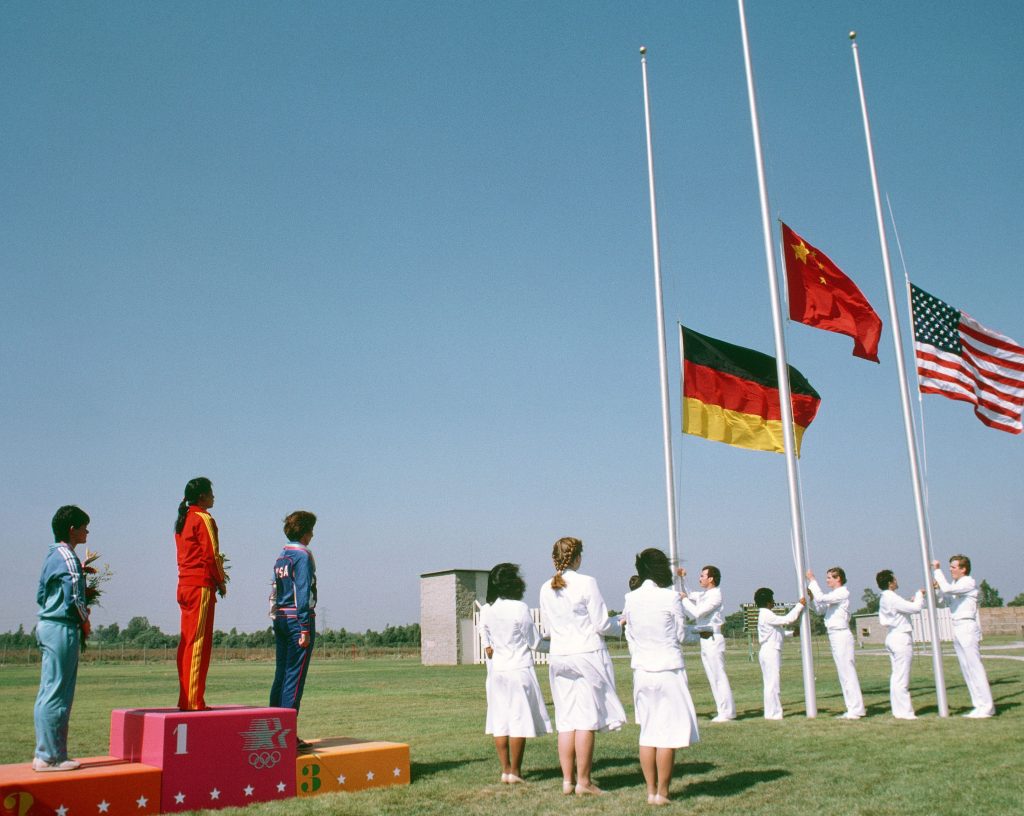[The following is an adapted chapter from Middle Way Philosophy 4: The Integration of Belief. It’s of special relevance given recent political events!]
Nationalism is an ideological commitment often, but not always, associated with conservatism. However, the fact that it can take liberal or socialist forms (as under the recent leadership of Alex Salmond in Scotland, or the anti-colonialist left wing leadership of such figures as Julius Nyerere in Tanzania) shows that it is worthy of separate treatment rather than being treated only as an aspect of conservatism. It could also be argued that most politicians add a seasoning of nationalism to their other ideologies – one that needs a separate critical perspective. For example, there are few politicians who will not appeal to ‘national interest’ to justify a stance in international negotiations, apparently without embarrassment.
Nationalism focuses specifically on one kind of value foundation of the six identified by Jonathan Haidt: that of loyalty. Loyalty to one’s country is predominantly loyalty to one’s compatriots and to the cultural (or perhaps linguistic and religious) traditions of that country, but also perhaps loyalty to that patch of the earth itself. Such loyalty clearly has a rooted basis in our moral experience, and in its benign, non-exclusive and non-ideological form may be defined as patriotism. I would suggest that patriotism involves an embodied sense of one’s relation to a particular ancestry, ethnicity, environment, language and culture, to deny which would be as fruitless as denying our bodies. Those who assume, explicitly or implicitly, that they are neutral in these respects must be deluded, for there is nobody with a body, for example, who can label other people ‘ethnic’ whilst they are not, or assume that their regional or class-specific language is the default and other people speak ‘dialects’.
For my own part, then, I try to acknowledge that I am an Englishman. What’s more, I’m a middle class educated Englishman subject to a particular set of cultural assumptions that go with that background. Although my culture and language are increasingly part of a globalised norm that tends to assume itself to be the default, these norms are actually very specific in their origins. Standard British English, which I use when writing, is just the one of many dialects of English that happens to have become dominant, but if you were hearing me speaking instead of reading, my delivery would be more obviously influenced by my physical state, background and environment, for example including a mildly northern English pronunciation. My geographical environment – that of an ecologically robust, damp, maritime, temperate, fertile, and heavily populated corner of Europe – is also only one of many specific geographical environments that help to form people’s cultural responses and assumptions, not some sort of default normality. I love the landscape and cultural heritage of England and embrace that specificity.
However, nationalism as normally understood, though made meaningful by this embodied patriotism, contains an additional absolute or metaphysical element: a belief in the absolute identity and value of the nation-state. Since belief in the nation-state means belief in the absoluteness of a set of boundaries and the value of what lies within those boundaries, it is a form of metaphysical field-belief (a belief about absolute boundaries). Such field-beliefs are in no way a necessary accompaniment of patriotism, for I can love my country without believing either that it should necessarily have particular boundaries or political organisation, or that the value of its assumed interests overrides other values. I could continue to love England, for example, whether it became part of a European superstate or whether it was divided up into micro-states, and even if the interests of its inhabitants in maintaining a particular level of wealth or land ownership needed to be greatly compromised to share that wealth or land with newcomers.
Such metaphysical field beliefs can be spotted as absolute assumptions that are required to reach particular policy judgements. For example, the belief that ‘national interests’ override the interests of those in other countries assumes an absolute rather than incremental distinction between the interests of those in one nation and those in another. This results, for example, in conflicts over resources or in immigration restrictions. If we compare these assumptions about national interests with those of an individual, they are equivalent to ‘self-interest’ – that is, a frozen representation of a self and its desires that is identified with at a particular time. Not only do the inhabitants of a country not necessarily identify with the particular boundaries and interests its government represents on its behalf, but it may actively prefer foreign ones, just as individuals may identify with others rather than themselves. The problem is thus not that nation-states, like individuals, have particular desires so much as that the represented context of those desires is assumed to be absolute and eternal. Nor is the problem with boundaries as such: nations need boundaries as a basis of action, just as individuals do, but those boundaries do not have to be absolutised. Boundaries on a political map, like those in language, can be provisional, accepted for practical reasons in the ongoing recognition that those reasons may change.
Though nationalism can be defined by this absolutised loyalty, it may also incorporate a range of other values depending on the circumstances. If a part of an existing nation-state demands independence, the emphasis is likely to be on liberty. If one nation is oppressed by another, the emphasis will be on fairness. If compatriots are suffering, the emphasis may be on care. If the nation has a clear leader such as a monarch, the authority of that leader is likely to be closely tied to loyalty to the nation. If the nation is closely associated with a specific religion, notions of sanctity are also likely to play a part. However, in each of these cases it would also be possible to detach the other value from the nationalistic beliefs. For example, in the recent referendum in Scotland on independence (2014), values of liberty and fairness were important for many Scots who voted ‘yes’ to independence, and who felt oppressed by the rule of Conservatives from London that they had not elected; but it would be possible to protest against this constraint and unfairness without tying it to the concept of Scottish nationhood.
The metaphysical elements of nationalism become even more pronounced in its extreme form as Fascism. Fascism not only maintains absolute field-beliefs in the nation, but also in the race that inhabits that nation. The difficulties of creating and maintaining an absolute division between a pure in-race and an inferior out-race became rather ludicrously apparent in Nazi Germany, where the stereotype of the pure Aryan did not fit Hitler himself very well, and Nazi men who were sexually attracted by Jewish women resorted to accusing them of using black magic to bewitch them rather than admitting their compatible humanity. Ideas of sanctity also tend to get embroiled in those of racial purity, with whatever lies beyond the zone of racial purity arousing disgust. Fascism also relies on the absolute authority of a leader in a way that supports totalitarianism.
Nationalism can be distinguished from most other political ideologies in its central reliance on specific metaphysical beliefs, rather than on value foundations that may or may not be absolutised (such as the care and fairness that are central to socialism). This means that there are also counter-beliefs to nationalism that deny these beliefs, such as internationalism and cosmopolitanism, which deny national boundaries or deny the exclusivity of value involved in national interests. Like most metaphysical denials, these are mistaken if they simply assert the opposite, in this case that national boundaries have no justification at all or that the desires of national groups have no value. Internationalism becomes metaphysical when it denies patriotism and the experience of loyalty when rebounding from the dogmas of nationalism. Our international sympathies can become gradually extended in a way that is integrated from an embodied starting point, but this process can be blocked rather than aided by a discontinuous leap to a wholly international perspective.
Internationalism thus offers a false middle way between the extremes of conflicting national absolutes, when it is instead patriotism that offers an experience of loyalty to country as a value foundation in experience. One’s patriotism might potentially expand to include a positive identification with all other nations, but I do not need to have necessarily experienced all other nations and find them meaningful to adopt a Middle Way response to my own. Genuine internationalism thus needs to develop from the roots of a non-exclusive identification with one’s own country, and the confusion or repression of such roots is more likely to result in shallow nationalism than in genuine internationalism – just as the denial of one’s individual desires does not create the conditions for loving others.
Of related interest: Cosmopolitanism
Picture: Medal ceremony from the 1984 Olympics (Creative Commons: Wikimedia Commons)


